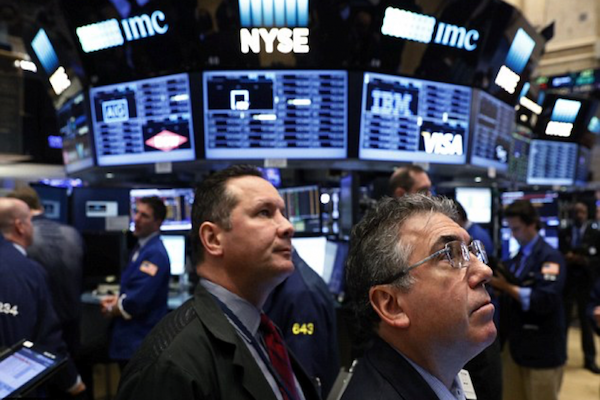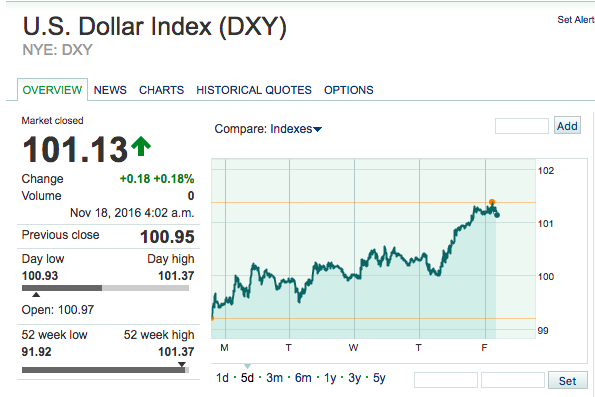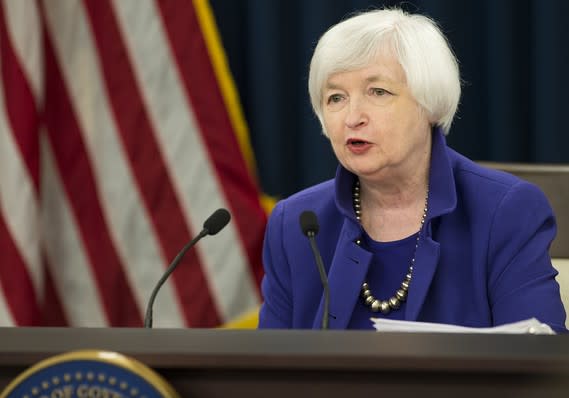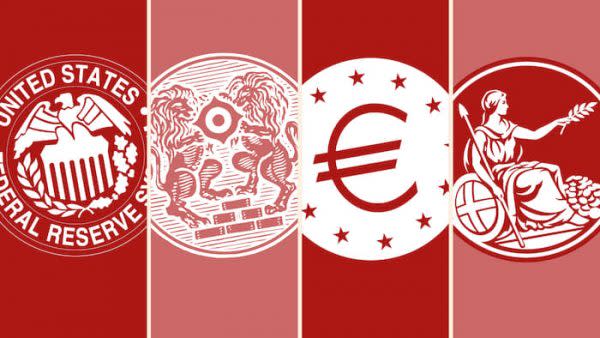Change of fortunes? Dollar hits 13-year high; Fed rate hike rumoured to be sooner

It was less than 2 weeks ago when analysts were expecting the dollar to fall as low as the Euro and the stock market was predicted to plummet from somewhere between 3%-5% under a Trump presidency.
What’s the update?
The greenback hit a 13-year high on Wednesday, driven by investors’ hopes that the Federal Reserve may raise rates more quickly under a Donald Trump presidency. It reached 100.57 before midday, the highest it has been since April 2003, and closed on 100.37, an increase of 0.23% since Tuesday.
The surge peaked a week of steady growth since Donald Trump claimed the presidential election on November 9 after initial overnight panic when the result was still unclear. The boost is evidence of investors’ hopes that Trump will implement a high-spend, low tax regime which will push up interest rates, said analysts.
Trump is promising to spend big on America’s roads and bridges, which could increase prices, wages and employment. That boost would increase overall economic growth in America, which has been sluggish in recent years. Better growth equates to a stronger dollar.
Has the stronger dollar helped?

Source: Call Levels
A stronger dollar may in fact not be the best news for many Americans. A higher dollar means American goods would be more expensive and less attractive to foreign buyers.
That’s exactly what happened in 2015. The dollar rose sharply on the hopes that the Fed would raise rates, then U.S. trade declined and America’s manufacturing sector went into recession for five months.
On Wednesday the S&P 500 dipped 0.2% to close at 2,177 as investors looked warily at a continuation of the “Trumpflation trade”, where expectations that Mr Trump’s policy of infrastructure spending will boost inflation are delivering surging borrowing costs and a robust dollar.
The Dow Jones average fell 0.3%. “The price of the precious metal could fall further if (a big if) the dollar and real bond yields continue to surge without these moves undermining the demand for riskier assets,” wrote analysts at Capital Economics.
Banks also suffered for the first time since the elections, with US Bank Corp stocks falling 1.7% and Bank of America shares dipping by 2%. The fall is the start of an ‘election hangover’, said experts, after a week of record-breaking growth since Trump’s surprise triumph.
The boost is evidence of investors’ hopes that Trump will implement a high-spend, low tax regime which will push up interest rates. Another key factor for the dollar is oil.
When oil prices fall, the dollar goes up, and vice versa. In recent weeks, oil prices have gone south, further strengthening the dollar’s value.
The 10-year US Treasury yield, which moves opposite to the note’s price, eased back 2 basis points to 2.22% after it approached 2.30% earlier in the day.
Yellen’s word on interest rate hike

Source: Call Levels
Ms. Yellen told lawmakers in testimony on Thursday that the Fed could move “relatively soon,” after the government released a grab bag of economic data all pointing to a stronger economy: an improving housing market, rising consumer prices and a more robust labor market.
Her comments bolstered expectations that the Fed will lift its benchmark federal-funds rate at its next meeting on Dec. 13-14.
Yellen warned that holding off on a rate increase for too long could force the Fed to raise rates relatively abruptly in the future to keep the economy from overheating.
But she said the near-term risk of “falling behind the curve” soon is limited, and reiterated that the bank expects to raise rates gradually over the next few years.
The improving economic news and Yellen’s word on the rate hike coming sooner has made investors pour money into the dollar and financial shares while pulling out money from government bonds which is very understandable since the two assets perform in the opposite direction.
What does this mean for the global economy?

Source: Call Levels
Markets were on a high after the election results as people withdrew their faith from the US dollar and stocks, putting their faith into rather safe havens such as Japanese Yen, Gold and Silver which clearly showed with the increase in Gold prices after the election.
Now with the dollar at an all time high, European stocks coasted lower and suffered a hit.
Germany’s Dax fell 0.7%, pressed by a 4.2% decline in Bayer. London-listed miners also struggled for momentum after China-traded iron ore futures fell 6%. Sterling was 0.2% weaker against the dollar at $1.2438 after data showed the UK unemployment rate falling to a fresh 11-year low, raising significant questions about the economy of the country.
The yen was 0.1% stronger at ¥109.14 and Japan’s exporters like a softer yen which helped the Nikkei 225 stock average gain 1.1% on Wednesday in a generally upbeat Asia-Pacific performance. South Korea’s Kospi rose 0.6%, but Hong Kong’s Hang Seng eased 0.2% and China’s Shanghai Composite was down 0.1%, the latter receiving little help from news that the Yuan was at its weakest against the US dollar since August 2008.
Future Outlook
So, the big question that comes in is what’s next? Some call it the stock market hangover post-Trump whereas some genuinely think that the Dollar is going to be high for a long time.
CNN Money reported that the greenback is expected to get even stronger in the next year or two because the Fed is raising rates while other countries like the U.K., Japan and European Central Bank are lowering rates, which weakens their currencies.
One of the big impacts on the dollar is the Fed hiking rates especially as other central banks stay put. But, with the announcement of rate hike to be sooner, the dollar can only be expected to surge. But, with the new tax structures and policies soon kicking in, will there be a U-turn in the fortune of the dollar?
Visit Call Levels website at https://www.call-levels.com/.
(By Call Levels)
Related Articles
- How Trump as president-elect will affect Singapore’s economy
- How the Fed’s rate policy affects Singapore
- Fed policy and Asian stock markets


